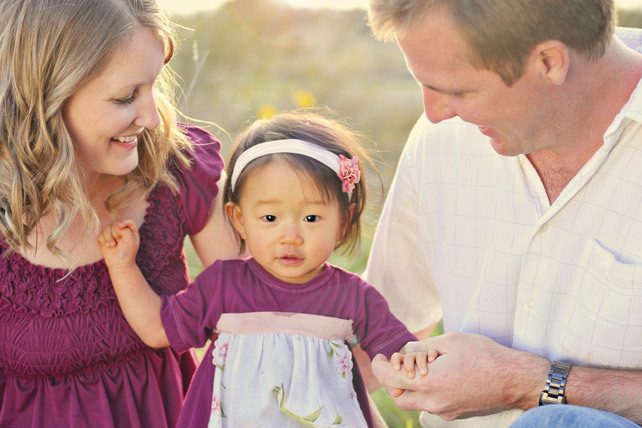Note from Ed Stetzer: After the news of Roe, and the increased talk of adoption, I wanted you to hear from Kelly Rosati. Kelly is a lifelong child advocate and CEO of KMR Consulting. She’s an adoptive mom and former Vice President of Advocacy for Children at Focus on the Family and the Executive Director of Hawaii Family Forum. I am thankful for Kelly’s passion for adoption, and I hope you’ll benefit from her blog post today.
In the last two decades, I’ve met countless people who, even though they don’t feel personally called to be adoptive parents, are nevertheless excited about adoption. They understand that it speaks to the dignity of every human life and that it underlines some basic truths about their own Christian faith. So I thought I’d take a stab at painting a picture of some ways everyone can play a role in adoption and illuminating why I believe it’s such an important subject.
Scene 1 — On Stage in the Sanctuary (This Is a Real Story)
At a church-sponsored adoption event, passionate servant-leaders unpack the clear and resounding call from the Holy Scriptures to care for orphans. Whether speaking one-on-one or in front of the larger group, they eloquently raise awareness of the plight of millions of orphans worldwide. They tell stories about the more than 100,000 kids in U.S. foster care who need permanent families. And they help attendees better understand the very heart of God—a Father to the fatherless—and His desire to use His followers to “set the lonely in families” (Psalm 68:5)
Having been touched by God to answer this call themselves, these leaders are trying to walk the talk. Theirs is not a “Do as I say, not as I do” message. In their homes and their lives, they’re doing their best to live it out. And they are honest about counting the cost, careful not to give the impression that every adoption story has a fairy tale ending. Ever-so-delicately, they remind those in attendance that while not every Christ-follower is called to adopt, everyone is called to do something. There are many ways the church body can be involved in this issue.
Scene 2 — 15 Minutes Later, in the Church Foyer (This, Too, Is a Real Story)
Away from the crowd during a break, these same leaders talk with one another in muted tones about their lives at home with kids whose backgrounds are filled with suffering, abuse, neglect, abandonment and deprivation. They recount incidents of violence and hours-long raging. They discuss the anguish of needing out-of-home care and the accompanying emotional agony and guilt. They lament the plight of healthier siblings who aren’t getting the attention they need. They note the stress that is added to their lives by extended family members who can’t or won’t understand and don’t help. They nobly attempt to soft-pedal the grief they feel when their church families offer a quick “atta boy” but nothing more practical. They talk about the strain in their formerly strong marriages, and the list goes on. Sleep deprivation. Secondary trauma. Hopelessness. Failure. And the feeling of being alone—so very alone.
But they try to remain thankful to the One who will never leave them or forsake them. They are trying to count it all joy. They are begging God for help, for healing for their children. They pray for strength to get up and do it all over again—day after day. They don’t like who they become at times, when the stress and fatigue take their toll—but they see no other way forward. They want to be filled with the fruit of the Spirit, but survival mode is the order of the day, every day, and it can go on for years. While their church friends talk about sports and college and music, they talk about individualized education programs, 504s, therapists and psychiatrists. All the adoptive families they know have versions of the same story.

